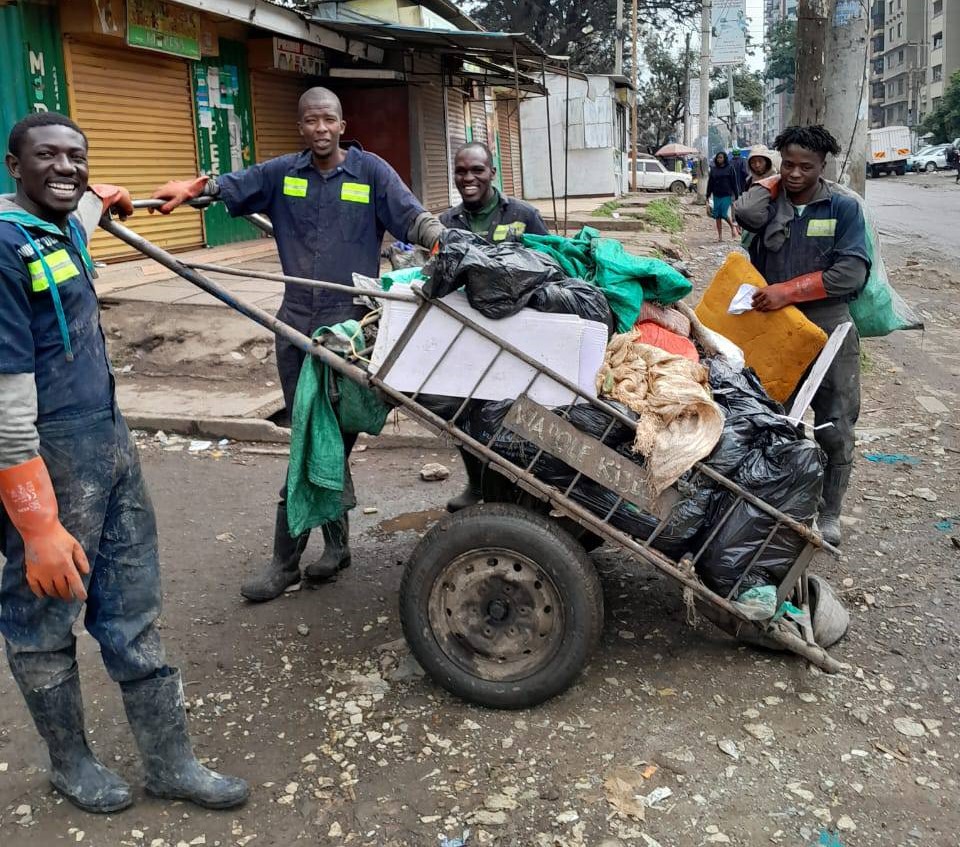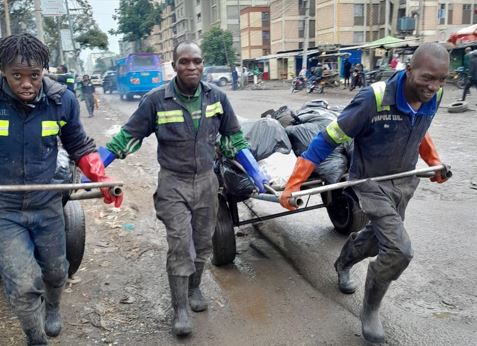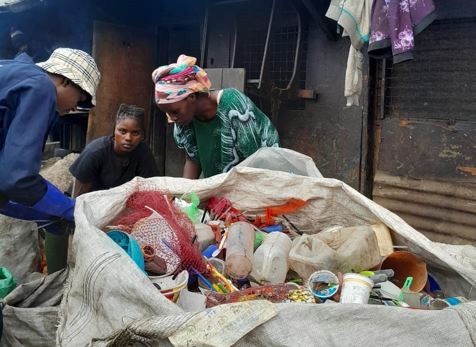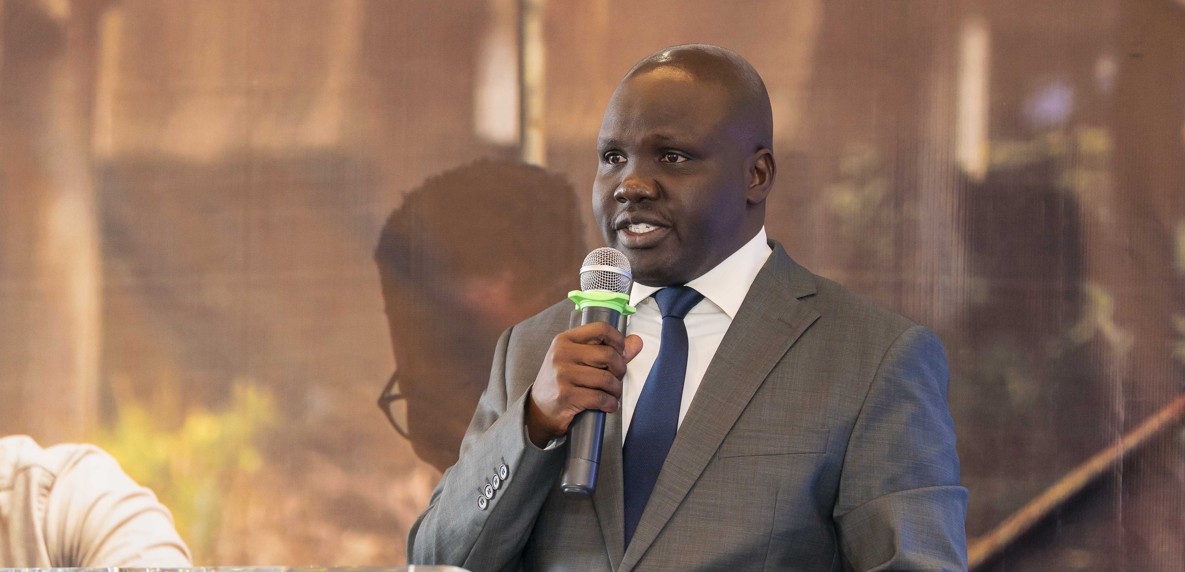Waste collection initiative helps Majengo youth improve their livelihoods

Voluntary Services Overseas introduced waste management training for collectors in Nairobi, Mombasa and Kisumu cities.
After completing college in 2018, Kevin Omondi longed to work and become self-sufficient, but opportunities were limited. He joined his family’s fish vending business at Naiorbi’s Gikomba market but this did not satisfy him; he wanted to earn his own money independently.
This led him to try waste collection from homesteads.
More To Read
- Court certifies urgent petition over Sh17 billion waste contract awarded to Ghanaian firm
- New Bill proposes hefty fines, jail terms for careless disposal of electronics
- NEMA gives counties 21-day ultimatum to enforce waste segregation or risk penalties
- Governor Sakaja vows to deregister private firms over illegal dumping of waste
- Unseen and unprotected: The hidden workforce battling Kenya’s waste crisis
- Counties blamed for garbage crisis as CS Barasa cites rampant defiance
But he soon realised his new venture was not as easy as he previously thought. To start with, residents of Majengo did not see the need to pay someone to collect their waste. Most were just throwing their household waste in open drainages.
Omondi then moved to collect waste from hotels, from which he would earn between Sh30 and Sh50 per collection depending on how much it was.
“This money was very little to sustain my needs,” says Omondi, adding that the work did not come regularly, which meant he had no regular pay.
Worse still, some people delayed paying him while others refused to pay him altogether. Due to his reluctance to interact with authorities like the local chief or Nyumba Kumi elders who could have helped him, it became hard for Omondo to follow up on unpaid dues.
His fear of people in authority saw him dump waste illegally in undesignated areas, as he did not want to be near where he would interact with them. This aggravated the waste management problem further.
The community worsened the situation, as they saw waste collectors as street urchins, or chokoras as they are commonly known, whom they didn’t hold in high regard. These challenges demoralised him.
“There were instances when my friends would call me for waste collection jobs and I would refuse to go. This meant I would not earn the entire week because we only collected during the weekend,” says Omondi.
Omondi then joined hands with other jobless youths and formed the Wapole Kijee waste management group. The group of about five members started collecting waste on weekends.
 Kevin Omondi (right) with Zaid Mohammed (centre) and Tin Tin collect garbage in Majengho, Nairobi. (Photo: Wapole Kijee)
Kevin Omondi (right) with Zaid Mohammed (centre) and Tin Tin collect garbage in Majengho, Nairobi. (Photo: Wapole Kijee)
“In as much as we were bringing a positive impact to our environment, our main focus was the money earned. We did not give much thought to the environmental impact of waste and we would refuse to collect from those who did not pay. We still feared the local authorities and would illegally dump in undesignated areas. This created alternative illegal dumping areas that defeated the purpose of proper waste management,” says Omondi.
Waste management training
Things began to look up when the Voluntary Services Overseas (VSO) organisation introduced waste management training for collectors in Nairobi, Mombasa, and Kisumu counties through the From Waste to Work initiative in February 2023. In Nairobi it is active in Kibra, Kiamaiko, Kamukunji, Viwandani, Kasarani, Lucky Summer, Dandora, Baba Dogo, and Mathare.
VSO’s From Waste to Work Nairobi representative Josephine Ongoro says waste collectors play a key role in the management cycle, yet they are the most disregarded and least supported.
Omondi says that through the From Waste to Work initiative, his group was trained on best practices in waste management and the value of all forms of waste. They also benefited from group formation, strengthening and value system training, life skills, financial literacy, and entrepreneurship skills.
Martin Ondunga, 35, a beneficiary of the From Waste to Work initiative through Wapole Kijee group, says his life has significantly changed for the better.
Just like Omondi, his venture into the waste collection business was to make money. He also opted for this area because he was idle and did not want to run the risk of being lured into joining gangs.
“I started picking waste from shops and hotels where I would earn Sh200 or Sh300 after working three to four times a week. I did not care for the environment and would illegally dump collected waste. I signed up for the From Waste to Work initiative because I wanted my capacity as a waste picker and collector to be improved, though I thought like others that had come before that it would be a one-off event that would soon leave us to our means,” says Ondunga.
He says the initiative has been very instrumental in not only improving his livelihood but also changing the face of his community and its environment.
“I have enhanced my knowledge in waste management and realised that all forms of waste are valuable. As Wapole Kijee group, we started community sensitisation by clearing and cleaning the drainages and waterways where households dumped their waste. We provided households with bags to put their waste and we would collect it at a fee of Sh30 every week,” says Ondunga.
The group which collects waste from 6 am to 10 am every day so that members can then do other individual chores has built its network from the previous 150 households it collected waste from to 700 households, schools, and churches in Majengo, Number 3, Kikuyu Street, Malanga Street and St. John’s ACK Street in Pumwani.
 Members of the Wapole Kijee Group in Majengo, Nairobi sorting out waste at the buyback centre. (Photo: Wapole Kijee CBO)
Members of the Wapole Kijee Group in Majengo, Nairobi sorting out waste at the buyback centre. (Photo: Wapole Kijee CBO)
Omondi says the group has educated their community on the importance of good waste management practices, by celebrating environmental awareness days with them.
In January this year, they educated people on how to avoid wastage through reusing and recycling. During the World Wetlands Day celebrations in February, the group sensitised the community on the importance of keeping drainage systems free of waste and also celebrated International Day of Zero Waste in March with calls to reduce food waste from households.
Omondi says this has resulted in a great acceptance of good waste management systems and contributed to the adoption of reusing, upcycling, and recycling.
“We also realised that our biggest challenge as waste collectors was the lack of knowledge on the value of the waste we collected and the lack of direct linkages to the waste buying companies. This meant that we had to sell our waste to brokers and aggregators who then sold at a higher price to the waste companies,” Omondi says.
Brokers eliminated
They have now eliminated the brokers and are selling the recyclable waste directly to the companies, having established a buy-back centre where they aggregate waste to sell to companies in bulk through the From Waste to Work project.
Previously, it would take us over three months to aggregate a tonne of waste. Today, it only takes us three weeks to aggregate the same. We have also roped in the community and individual collectors whom we pay Sh20 per kg of recyclables they bring to us,” says Omondi.
He says the groups now have market knowledge of different forms of waste and have direct linkages to the waste recycling companies that buy them. They have diversified into selling cardboard boxes, plastics, thermoform, e-waste, low-density paper bags, milk packaging papers, and metals.
The group, which now consists of 20 members, has employed three permanent people at the buyback centre, which has also become a learning centre for various recycling groups.
“I was not used to earning a consistent monthly income as I was working once a week. Today, I have a full-time job where I earn from waste collection and the buyback centre, says Omondi.
Ondunga on the other hand says he is happy because the community has accepted them and the work they do and no longer views them as chokoras or thieves but as professionals working in the waste management sector.
He is also happy that the environment has transformed and his knowledge of waste management has improved a great deal. He is now assured of an earning every week, to supplement his other work of tinting and printing vehicles.
“After three years, I want to open a stylish and modern barbershop,” says Ondunga.
On her part, Ongoro says that it is encouraging to see waste collectors who previously had been lost in drugs now gainfully engaged, saying that after the life skills and financial literacy training on expenditure and savings, they realised that they were wasting money on drugs and are now sober.
She adds that their outlook has also changed and they no longer look unkempt and have stopped wasting their time sleeping in parks.
“A significant change has also been experienced in their income. There is a group, for instance, that could not make beyond Sh50,000 after a sale, yet their most recent sale raked in Sh168,000,” says Ongoro.
Omondi says that if the initiative can be replicated countrywide, the problem of illegal dumping will be eliminated, growing landfills will be significantly reduced through reusing and recycling and the waste management economy will benefit every player in the value chain.
Top Stories Today

















































